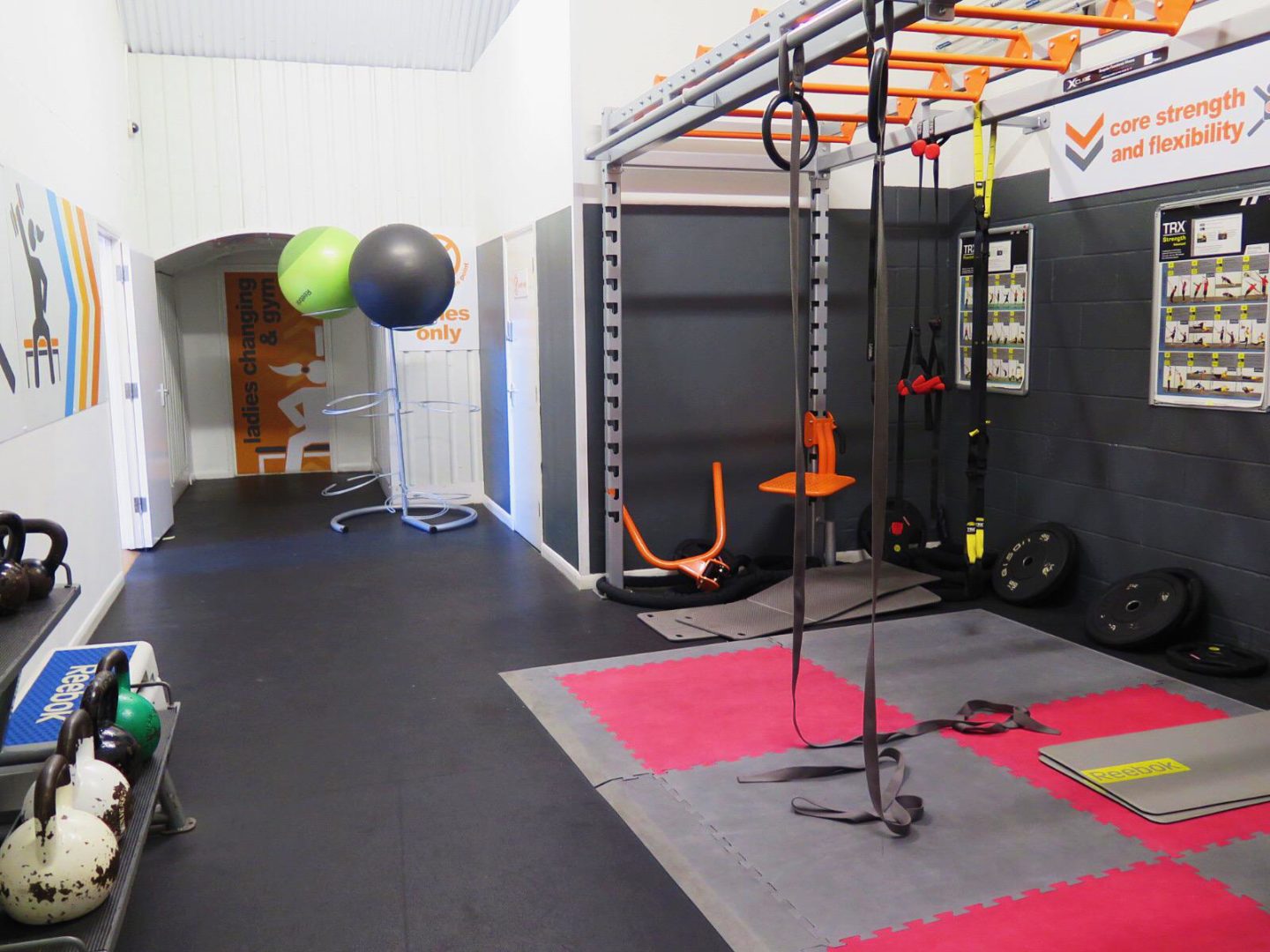
It’s that time of year again. Society crawls out, bleary-eyed, from under the glorious fleece of Christmas hibernation, only to be mown down by an army of money-makers, all chomping at the bit and ready to pitch their own version of ‘New Year, New You’ to every hungover sod who, in a frenzy of mince-pie fuelled self loathing, has convinced themselves that 2019 is their year of transformation, and that now is the time to ‘whip’ themselves back into shape, ‘smash’ their goals and ‘shake up’ their exercise routines. Having spent years thinking and writing about the significance and impact of words in literature, I’m convinced that language matters. The phrases and vocabulary we choose, communicate our belief systems and mindsets to the rest of the world and, crucially, form the framework with which we understand our own.
So when we hear or use aggressive terms such as the above, we condition ourselves to associate exercise with punishment and pain. It’s subtle, and inevitably served up with a generous dose of seemingly positive and inspirational buzzwords (think “transformation”, “motivation” and “body confidence”) – but underlying these mixed messages is a wolf in sheep’s clothing, teaching us that, when it comes to exercise, hurting signals success. More disturbingly, self-love, the new diva of the health and wellness industry, is increasingly being conflated with the idea that the number of hours you can clock on the treadmill or your dedication to yoga, are barometers of your self-worth. When you break it down it’s a shady premise: “In order to love myself, I need to love my body (problematic); in order to love my body I need to change it to conform to social or personal ideals (alarm bells); in order to change it I need to exercise in a carefully formatted, goal-driven way (red flag)… and it needs to hurt (wait…what?).” In the blink of an eye, we’ve nose-dived from loving ourselves to hurting ourselves, but it’s totally fine because, well… abs. And yet I struggle to find another context in which whipping or smashing oneself is worn as a badge of honour. Or where we voluntarily engage in a pastime (which incidentally is how I wish more of us could view exercise), that we derive little pleasure from, which we have to psych ourselves up for and drag ourselves to.
Gyms in January are case in point. For seasoned members (myself included), this is the worst time of year. All the classes are rammed, there’s a queue for the weights and for about six weeks (max) the serene little haven that for the rest of the year provides a break from reality, becomes a cattle market of newbies parading around with straight-out-of-xmas-wrapping Fitbits and SweatyBetty yoga mats, looking to get lean, whilst eager PTs try to sell them “get back on track” workout packages. I’m not gonna lie, I get snobby and resentful and long for February when the craze has died down, the newbies have lost their zest for the unsustainable regimes they vowed allegiance to in a haze of booze and regret on New Year’s Day, and I can get back to pottering along and doing my thing until it all kicks off again next year. But what really pisses me off, what makes my blood boil and pretty much negates the phenomenally curative effect exercise has on my anxiety, is the script I have to sit (metaphorically) through during classes. After 20 odd years of a tumultuous relationship with exercise I’ve reached a relatively happy place. I’ve pounded pavements, bounced around in my living room to DVDs, wiggled myself into oblivion on the cross trainer, and finally found something that I enjoy, that suits me and that keeps my mood and anxiety stable. I do classes. Zumba, step, boxing, you name it I’ve tried it and as long as the energy’s high, the teacher’s cheerful and the music is bangin I love it. What I don’t love is being given a 45-minute monologue about beating the xmas bulge, burning off the booze or blitzing the turkey dinner. It’s not what I paid for. I’ve worked bloody hard to retrain myself to be aware of and appreciate the many joys of exercising in a group. The social aspect and sense of community, the chance to listen to music – which I don’t do much of otherwise, the structure it gives to my freelance and potentially lonely life, the fact that I see the same fellow gym-goers and members of staff, many of whom have become close friends, and that no matter how shitty my day has been, they’ll always perk me up with a smile and a bit of banter. I literally have a checklist of these things and refer to it daily to make sure exercise doesn’t slip into the dark, hopeless place it once was for me. It’s a conscious effort, but the massive support network it provides is invaluable. However when I’m listening to an instructor barking “think of what you came here to achieve” or kicking off the class with “let’s burn some calories”, it really makes me question stuff. What did I come here to achieve? Actually, did I come here to achieve anything specific at all? Is burning calories the only reason people exercise?
Many years ago, I had a Personal Training session. Up to that point, I’d always been a solo exerciser and, like many, had fallen into that trap of going through the same, joyless motions every day: mindlessly bashing out a certain distance on the treadmill before hurling myself onto the yoga mat for a mind-numbingly repetitive set of crunches. And whilst for me it was never directly about changing the way that I looked, I had definitely developed a cognitive detachment from my feelings which allowed me to continue, day-in-day-out, with something I had long stopped deriving any pleasure from. I remember my turning point. Immensely bored with my routine, I’d actually started to read magazines whilst I was running. I’d pore over the latest version of Closer to take my mind off what my body was enduring, which in itself should have sent alarm bells tinkling that, somewhere along the line, my pastime had become less about enjoyment and stimulation, and more about habit and some oblique sense of obligation. The fact that I elected to “distract” myself by reading all about how to “get slim in 48 hours” and the latest reality TV star’s “top tips for a flatter stomach” probably didn’t do me any favours either. Gotta love hindsight. Anyway, I decided to take advantage of a free session offered by my gym, mainly in an attempt to pull myself out of the lonely and, to be honest, pretty wretched rut I was in. I didn’t have a burning desire to transform myself; I just knew that what I was doing had become boring as hell and needed a bit of sparkle. I certainly wasn’t up for a prescriptive new lifestyle plan. So imagine my dismay when my Gladiator-for-the-hour rocked up, armed with a file so heavy we could have used it for deadlifts, and proceeded to interrogate my motivations, my ‘problem areas’ and my specific goals: “What do you want to work on? Because this is all about you, and what you want to achieve.” It was all well-meant – a spiel clearly designed to make me feel like an appreciated individual with bespoke needs and desires. But it just made me squirm. All of a sudden, I realised that “I just want to enjoy exercise again” and “some company would be nice” just weren’t going to cut it. So I sat uncomfortably through an unsolicited crash-course in leg days, anaerobic endurance, and exactly how long before a workout I should be weighing out one of several lean protein small meals that, by the way, I was now obliged to get on board with. And then, gracefully, I made my excuses and bolted, taking with me a protein shake voucher and a host of supposedly motivational sound bytes. The one that my confused little brain found particularly problematic was “you gotta train right to see results”. Which brings me back to the use of terminology in this industry. Since when did “training” come into it? Unless you’re a professional athlete (which I am clearly not) or maybe, at a stretch, a humble civilian preparing for a marathon, why the hell should you be thinking of exercise in terms of training? Coupled with the assumption that we are all driven towards a set of tangible, physical results, this dogmatic perception of exercise is essentially a dolled-up version of the “no pain no gain” Fonda camp that, along with mullets and cheese-and-pineapple sticks, is probably best left behind in the glorious ‘80s.
Unfortunately however, far from having shunned the skewed and potentially damaging premise that beauty comes at a price, social norms remain rooted in the age-old adage: “il faut souffrir pour être belle”. We may not be squeezing into corsets or slowly poisoning ourselves with arsenic wafers to achieve a lighter complexion (apparently all the rage in 1900) – but we still glorify and celebrate the idea of self-punishment as a means to an end. Same product, different packaging.
When was the last time you stopped to consider whether “if it’s not hurting, it’s not working” was actually a value to live by. We need to explore the darker connotations of the seemingly inspirational gimmicks that still pepper our language. The link between the world of health and fitness, and religion is becoming apparent. There is an ever-growing cult of wellness converts who, quite literally, seem devoted to the pursuit of health, and whose lives are shaped around a shaky belief system based on the theory that they can somehow become better, purer, and more worthy, by chaining themselves to a Stairmaster and refraining from eating anything that’s seen a grain of sugar.
Whichever way you look at it, this has become religion. The existence of a moral hierarchy, the presence of figureheads and teachers, whom we follow ardently, and whose convictions, no matter how tenuous, become scripture. Whilst it’s fascinating from an academic perspective, we’re playing with fire. And as long as whoever is enjoying their five minutes of fame on the soapbox is preaching that exercise needs to be about self-discipline, sacrifice and success or failure, society is consolidating its disordered redefinition of what could be, should be and maybe once was first and foremost a hobby, a leisure activity and, most importantly, a bit of fun.


